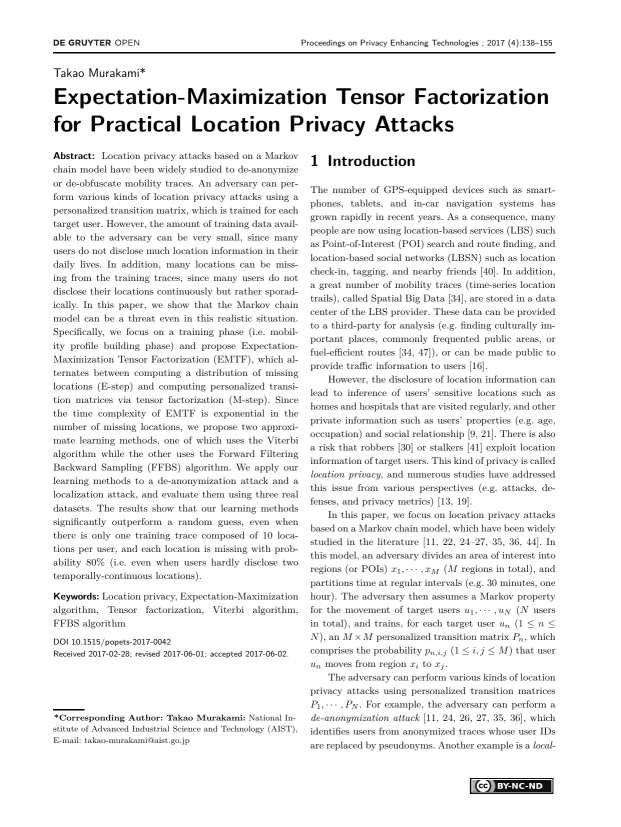Expectation-Maximization Tensor Factorization for Practical Location Privacy Attacks
Authors: Takao Murakami (National Institute of Advanced Industrial Science and Technology (AIST))
Volume: 2017
Issue: 4
Pages: 138–155
DOI: https://doi.org/10.1515/popets-2017-0042
Abstract: Location privacy attacks based on a Markov chain model have been widely studied to de-anonymize or de-obfuscate mobility traces. An adversary can perform various kinds of location privacy attacks using a personalized transition matrix, which is trained for each target user. However, the amount of training data available to the adversary can be very small, since many users do not disclose much location information in their daily lives. In addition, many locations can be missing from the training traces, since many users do not disclose their locations continuously but rather sporadically. In this paper, we show that the Markov chain model can be a threat even in this realistic situation. Specifically, we focus on a training phase (i.e. mobility profile building phase) and propose ExpectationMaximization Tensor Factorization (EMTF), which alternates between computing a distribution of missing locations (E-step) and computing personalized transition matrices via tensor factorization (M-step). Since the time complexity of EMTF is exponential in the number of missing locations, we propose two approximate learning methods, one of which uses the Viterbi algorithm while the other uses the Forward Filtering Backward Sampling (FFBS) algorithm. We apply our learning methods to a de-anonymization attack and a localization attack, and evaluate them using three real datasets. The results show that our learning methods significantly outperform a random guess, even when there is only one training trace composed of 10 locations per user, and each location is missing with probability 80% (i.e. even when users hardly disclose two temporally-continuous locations).
Keywords: Location privacy, Expectation-Maximization algorithm, Tensor factorization, Viterbi algorithm, FFBS algorithm
Copyright in PoPETs articles are held by their authors. This article is published under a Creative Commons Attribution-NonCommercial-NoDerivs 3.0 license.

